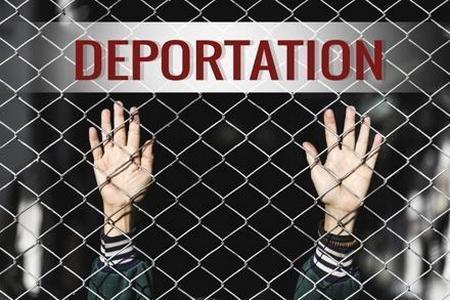What Are the Options for Ineligible or Inadmissible Immigrants?
 The steps for immigrating to the United States can be complicated and frustrating. In some cases, an individual may be labeled “ineligible” or “inadmissible.” An immigrant who is inadmissible is not lawfully permitted to enter or stay in the United States (if already here).
The steps for immigrating to the United States can be complicated and frustrating. In some cases, an individual may be labeled “ineligible” or “inadmissible.” An immigrant who is inadmissible is not lawfully permitted to enter or stay in the United States (if already here).
The Immigration and Nationality Act (INA) sets guidelines for inadmissibility. In certain circumstances, it may be possible for a person to obtain a waiver to enter or remain in the country. There are some exceptions written into law and if the individual meets these exceptions, no waiver is required. These include immigrants who have been abused, battered, or subjected to extreme cruelty, victims of trafficking and those who are minors.
Reasons for Inadmissibility
If an immigrant is termed inadmissible, it means he or she will be denied a green card or visa unless he or she meets the requirements to apply for a waiver. Section 212(a) of the INA lists the grounds of inadmissibility. They include certain types of crimes, in addition to communicable diseases, prior immigration violations, and the probability of needing financial assistance from the government. The main categories or reasons for inadmissibility are:
- Health
- Criminal activity
- National security
- Public charge
- Lack of labor certification (if mandatory)
- Fraud and misrepresentation
- Prior removals
- Unlawful presence in the United States
Types of Immigration Waivers
Under the Immigration and Nationality Act (INA), a waiver of inadmissibility is a form of legal relief to any person found to be “removable” from the United States. Every American (national of the United States) is automatically eligible for a waiver of inadmissibility. Likewise, any person who has resettled in the United States as a refugee is entitled to a waiver of inadmissibility. All other individuals can request this by filing an “Application for Waiver of Grounds of Inadmissibility,” or Form I-601.
The visa category for which someone applies will determine if a waiver of ineligibility is available. The consular officer will interview the applicant and inform him or her if he or she may apply for a waiver as well as provide detailed instructions on how to apply. Below are some of the waivers of inadmissibility an immigrant can seek to obtain:
- Prior Deportations or Removals Waivers: Any immigrants who wish to re-enter the country (after being deported previously) can request to have the waiting period waived.
- Unlawful Presence Waivers: Immigrants can seek to remove the three- or 10-year period if he or she entered the country illegally or overstayed his or her visa.
- Criminal Charges and Convictions Waivers: Waivers are available for crimes that are over 15 years old, as well as crimes of moral turpitude (CMT). This only applies if the individual has no previous aggravated felony convictions, and other specific criteria is met.
- Nonimmigrant Waivers: Nonimmigrants who fall into one of several categories may apply for a waiver of inadmissibility to enter the United States on a temporary visa.
Contact an Illinois Immigration Attorney
Immigrating to the United States can be a long and arduous process. If you or a loved one is hoping to secure a U.S. visa, but you have been labeled ineligible or inadmissible, you may have the option of obtaining a waiver of inadmissibility. This can help you achieve your dream of eventually becoming a U.S. citizen. The skilled legal team at Mevorah & Giglio Law Offices has decades of experience assisting clients enter or stay in the United States by filing the proper paperwork. Call one of our knowledgeable Illinois immigration lawyers today at 630-932-9100 to schedule a free consultation.
 English,
English,
 Spanish,
Spanish,
 Polish,
Polish,
 Urdu
Urdu













 Make a Payment
Make a Payment



